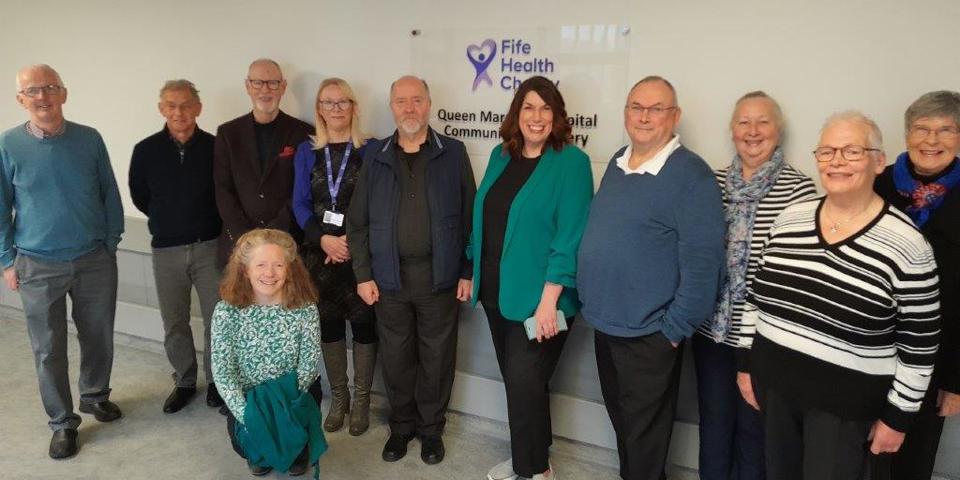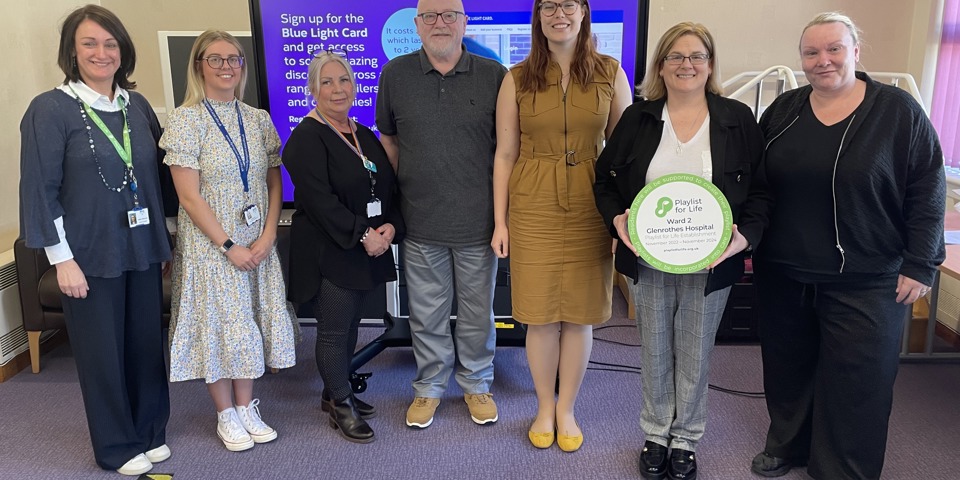- Date awarded: June 2021
- Awarded value: £103,064
- Fund: £88,064 from the Fife Primary Care Fund and £15,000 from the Pharmacy Fund
- Location: Fife-wide
ELectra 2 Project: Preventing inappropriate prescribing of multiple medicines in Fife through intelligent electronic records that will identify subsequent intervention.
This project aims to build on the existing Electra data infrastructure, to provide data driven interventions to NHS Fife practitioners for health care improvement activities and improved outcomes for patients with and without complex multimorbidity.
ELectra 2 will provide proof of concept to an innovative initiative in these challenging times that will additionally see significant cost savings and cost avoidance to NHS Fife.
Specific Objectives
- To develop reports using data from across primary and secondary care, identifying patients with and without complex multimorbidity (multiple health conditions) that usually result in multiple prescribed medicines (formally polypharmacy) to help support specific medication review and effective complex case management.
- To support the NHS Fife Pharmacy team to undertake an innovative approach to targeted medication review and case management of patients, to improve patient safety, reduce risk of harm from medicines and improve patient outcomes.
- To develop a framework which allows evaluation of longer term impact of the reviews on medication use, GP consultations and hospital admissions.
- To support a health and wellbeing agenda and reduce inequalities.
Multimorbidity (MM), the presence of two or more long term conditions, presents major challenges to healthcare systems and the delivery of health care to individuals. Complex multimorbidity, where a person has four or more conditions, is of particular concern, and care of these individuals has a high level of burden on health services. Work from the initial Fife Health Charity funded ELectra project suggested that 14.0% of the whole Fife population had multimorbidity with 4.3% having complex multimorbidity. These proportions increased with age and social deprivation.
Multiple medicines, being prescribed two or more medications at the same time on a regular basis, occurs more often in multimorbid patients who also tend to be older and more susceptible to side effects from medicines. The relationship between multimorbidity and multiple medications is poorly understood.
The Electra1 project developed an Information Technology and Management Infrastructure. It was built upon existing local and national investments in information technology and digital health that are essential for the delivery of the NHS Scotland’s clinical (health and wellbeing) strategy. ELectra put a unique process in place to link GP data for consenting practices. NHS Fife clinical datasets, including primary and secondary care were linked to create a cleaned, ‘live’ and comprehensive linked information/intelligence system.
NHS Fife has highlighted the management of patients with multimorbidity as a key element of its remobilisation strategy. The review of patients, who are prescribed multiple medicines, is a key part of NHS Fife’s Prescribing and Integrated Pharmacy strategy.
However, there is no effective method of identifying and prioritising these patients using current information systems. This project is innovative in that although other research groups are exploring use of multiple medication in the population with multimorbidity we aim to develop, deliver and evaluate an intervention within current services. There have been a number of similar research projects across the UK but these have generally not been adopted into routine practice after the end of the project.
The plan is to build on the Electra1 infrastructure to provide patient-level reports to practices identifying patients with multimorbidity, complex multimorbidity and multiple medicines. The plan is also to explore potential data driven interventions to support NHS Fife pharmacists and other prescribers to reduce potentially inappropriate use of medication in these groups and using the ELectra system, monitor longer term outcomes in the population. Focussing on this group of patients will ensure resources are targeting patients at most need which includes many of the more deprived patients within Fife and in turn may help reduce health inequalities.
The support from Fife Health Charity will allow the integration of this state of the art digital platform and the utilisation of an innovative evidence-based modus operandi. This will resolutely approach and resolve a problem that is currently increasing the burden to health and social care systems and reducing the quality of life of Fife citizens.
This project will have a steering group comprised of members of NHS Fife Pharmacy Services, NHS Fife R&D&I Office, NHS Fife Digital Health and Information group, East Fife Health & Social Care Partnership as well as members of the University of St Andrews research group.


